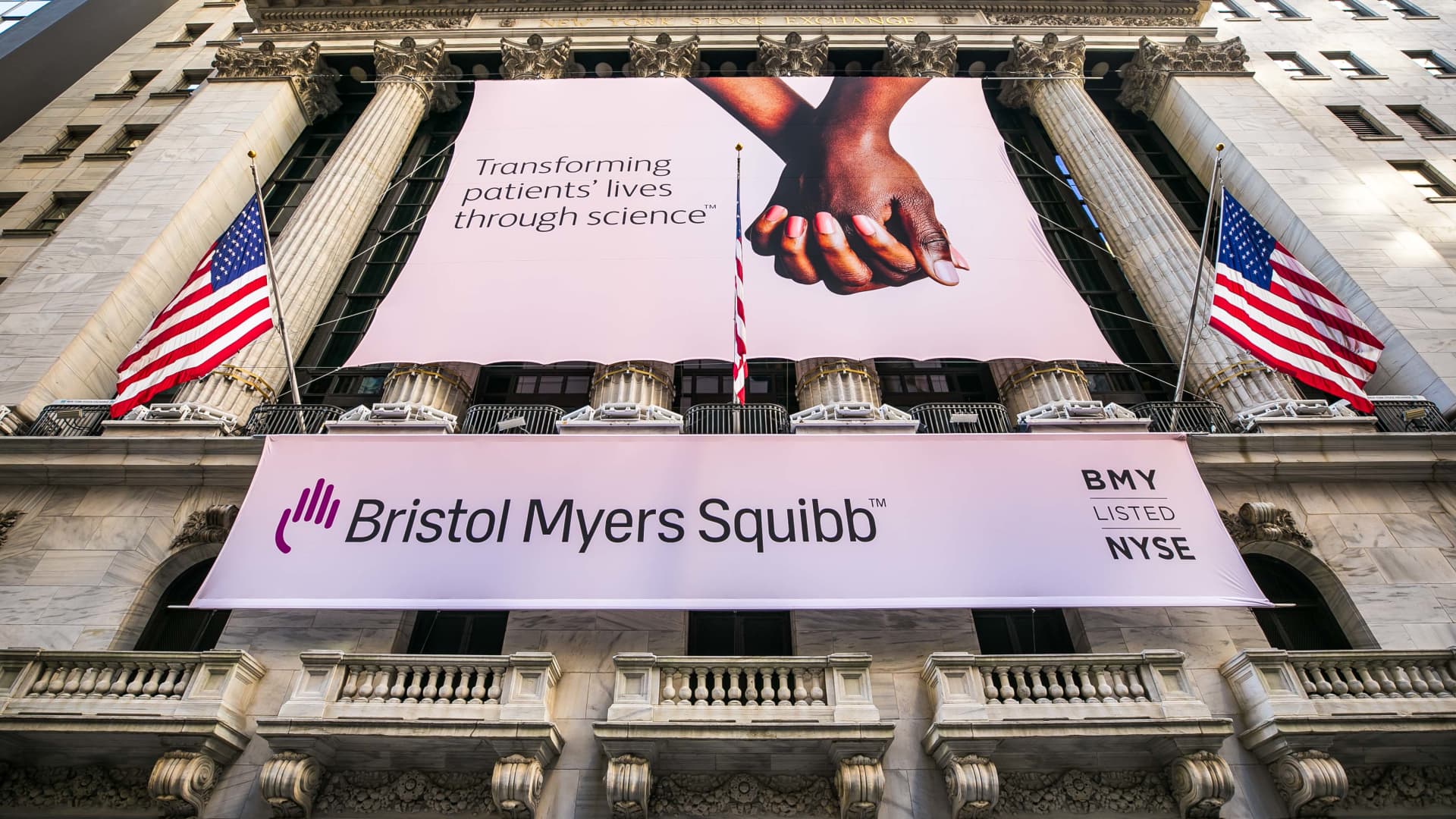Bristol Myers Squibb on Friday announced it agreed to buy biopharmaceutical company Karuna Therapeutics for $14 billion in cash, or $330 per share.
Karuna’s stock popped more than 47% on the news Friday morning, hitting around $317 a share. Bristol Myers Squibb shares rose more than 2%.
The deal will help expand Bristol Myers’ drug pipeline after competition from a generic offering caused demand for the company’s blood cancer drug Revlimid to tumble in its third quarter.
The boards of directors at both Bristol Myers and Karuna unanimously approved the acquisition, and it is expected to close in the first half of 2024, according to a release.
Karuna develops medications for patients living with neurological and psychiatric conditions. The company’s lead asset is an antipsychotic called KarXT, which is expected to serve as a treatment for adults with schizophrenia beginning in late 2024, the release said.
“There are tremendous opportunities in neuroscience, and Karuna strengthens our position and accelerates the expansion and diversification of our portfolio in the space. We expect KarXT to enhance our growth through the late 2020s and into the next decade,” Bristol Myers Squibb CEO Christopher Boerner said in a statement.
KarXT is also being evaluated as a possible treatment for Alzheimer’s disease psychosis and a form of bipolar disorder, according to the release. Karuna CEO Bill Meury said the company’s portfolio “offers advancements in treatment not seen in many years.”
“With Bristol Myers Squibb’s long-standing expertise in developing and commercializing medicines on a global scale and legacy in neuroscience, KarXT and the other assets in our pipeline will be well-positioned to reach those living with schizophrenia and Alzheimer’s disease psychosis,” he said in a statement.
Citi and Gordon Dyal & Co advised Bristol Myers on the deal, while Goldman Sachs served as the exclusive advisor for Karuna.
–CNBC’s Annika Kim Constantino contributed to this report
